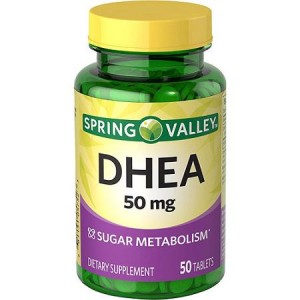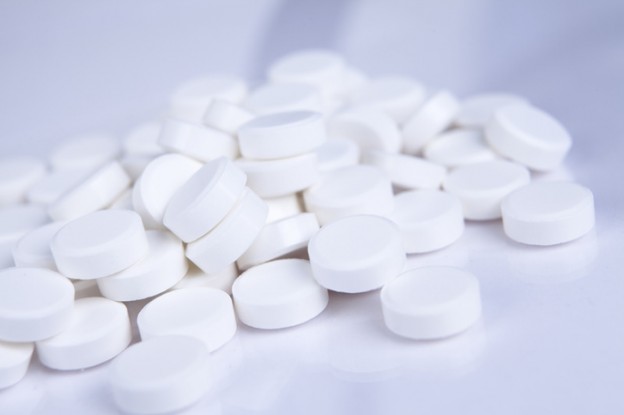By Anthoney J. Andersen – Steroidal.com
One of the most difficult realities for many of us to accept is the inevitability of getting older. As we age, hormones begin to decrease, which can cause a plethora of other health conditions like aging skin, erectile dysfunction, muscle loss and osteoporosis.
Aging can be a hard pill to swallow, but it doesn’t have to be. The good news is, there are supplements out there – one in particular – that may help assist in the body’s ability to minimize these health conditions from occurring.
The supplement in question is known as DHEA.
ORIGIN OF DHEA
DHEA, or dehydroepiandrosterone, is an adrenal steroid hormone in the body. DHEA is produced by the adrenal glands – small glands located on top of each kidney – and is then converted to androgens, estrogens and other hormones. These are the hormones that help regulate fat and mineral metabolism, sexual and reproductive function and energy levels.
Except for emergency contraception (“morning after pill”), you can’t buy steroid sex hormones – such as estrogen and testosterone – over the counter; they are sold as prescription drugs only.
 However, DHEA is the one steroid hormone that is sold as a dietary supplement, and is often referred to as the “superhormone” or “nature’s antidote to aging.”
However, DHEA is the one steroid hormone that is sold as a dietary supplement, and is often referred to as the “superhormone” or “nature’s antidote to aging.”
DHEA levels continue to increase through our mid to late 20s, then gradually start to decline. By age 70, DHEA levels have typically fallen by at least 80 percent. Production of DHEA may also decrease when certain medications – like insulin and corticosteroids – are taken.
Other factors that can contribute to low DHEA levels are:
- Sugar
- Nicotine
- Caffeine
- Alcohol
- Nutritional imbalances
- A vegetarian diet low in cholesterol and healthy fats (like omega-3 fatty acids)
WHY TAKE DHEA?
According to WebMD, many studies have found that DHEA supplements may help people with depression, obesity, lupus (an autoimmune disorder that affects the skin and organs) and adrenal insufficiency. DHEA may also help improve the skin’s complexion in older individuals, as well as help treat the thinning of bones, known as osteoporosis.
Low DHEA levels can be attributed to aging, as well as a number of diseases such as anorexia, type 2 diabetes and HIV. In older men, having low DHEA levels is also associated with a higher chance of death.
Experts still have not concluded whether DHEA supplements will help lower the risks of getting diseases.
UNCOVERING THE MYSTERY
According to the University of California Berkeley Wellness Center, there is still a lot that experts need to learn before concluding whether DHEA actually supports the anti-aging claims in humans. Granted, a growing body of research suggests that DHEA can prevent or reverse the diseases that anti-aging experts have identified as the most prominent markers of accelerated aging: atherosclerosis (hardening and clogging of the arteries), cancer, diabetes and reduced immunity.
Furthermore, experts have also concluded that the level of DHEA in a person’s blood is an excellent predicator – not only of these anti-related health issues – but also of aging itself.
“DHEA is undeniably one of the most crucial predictive factors in diagnosing age-related diseases,” says Ronald Klatz, D.O., president of the American Academy of Anti-Aging Medicine.
DHEA can help extend the life spans of animals, and holds the promise as a defense against degenerative diseases of aging, but can the hormone actually extend the human life span?
“While the research literature strongly supports this claim, it still remains unproven,” says Klatz.
The following are some of the diseases/health ailments that experts have tested DHEA on, and what they discovered during their testing:
- General “anti-aging” effects: One of the longest studies on DHEA was a two-year Mayo Clinic trial of people over 60 in the “New England Journal of Medicine” in 2006. The study found that DHEA supplements did not improve muscle strength, physical performance, body composition, blood sugar control, or quality of life (there was a minimal and inconsistent improvement in bone mineral density, however).
- Cardiovascular disease: Most studies have concluded that DHEA has no significant effects on blood cholesterol, blood pressure, or other cardiovascular risk factors.
- Aging muscles: Some studies have found that DHEA helps counter loss of muscle and strength in older people. However, at least as many have found no improvements. A 2011 review in the “Journal of the American Geriatrics Society” found that research on muscle strength and physical function remains inconclusive.
- Aging bones: Studies have produced inconsistent or conflicting findings regarding bone mineral density, according to a 2013 review in “Osteoporosis International.” In some studies, only older women benefited, while other findings differed in which skeletal sites showed improvement.
PROPER DOSAGE FOR DHEA
According to WebMD, there is currently no standard dosage for DHEA. Studies have given their test subjects dosages in capsule form ranging between 25 and 200 milligrams a day, sometimes higher. The dosage simply comes down to the specific medical condition being treated.
If you’re a person who tends to shy away from the idea of taking supplements, unfortunately for you, there are no food sources that contain DHEA. The body manufactures DHEA naturally in the adrenal glands, and wild yams have been found to contain a substance similar to DHEA that experts use to make it in the laboratory.
THE FINAL ASSESSMENT
Since it’s still unclear whether or not DHEA can actually help improve certain medical conditions, it’s wise to first speak with your doctor to make sure that taking DHEA supplements would be advantageous to your overall health, and not combat with any preexisting medical conditions that you may have.
Stay healthy.







